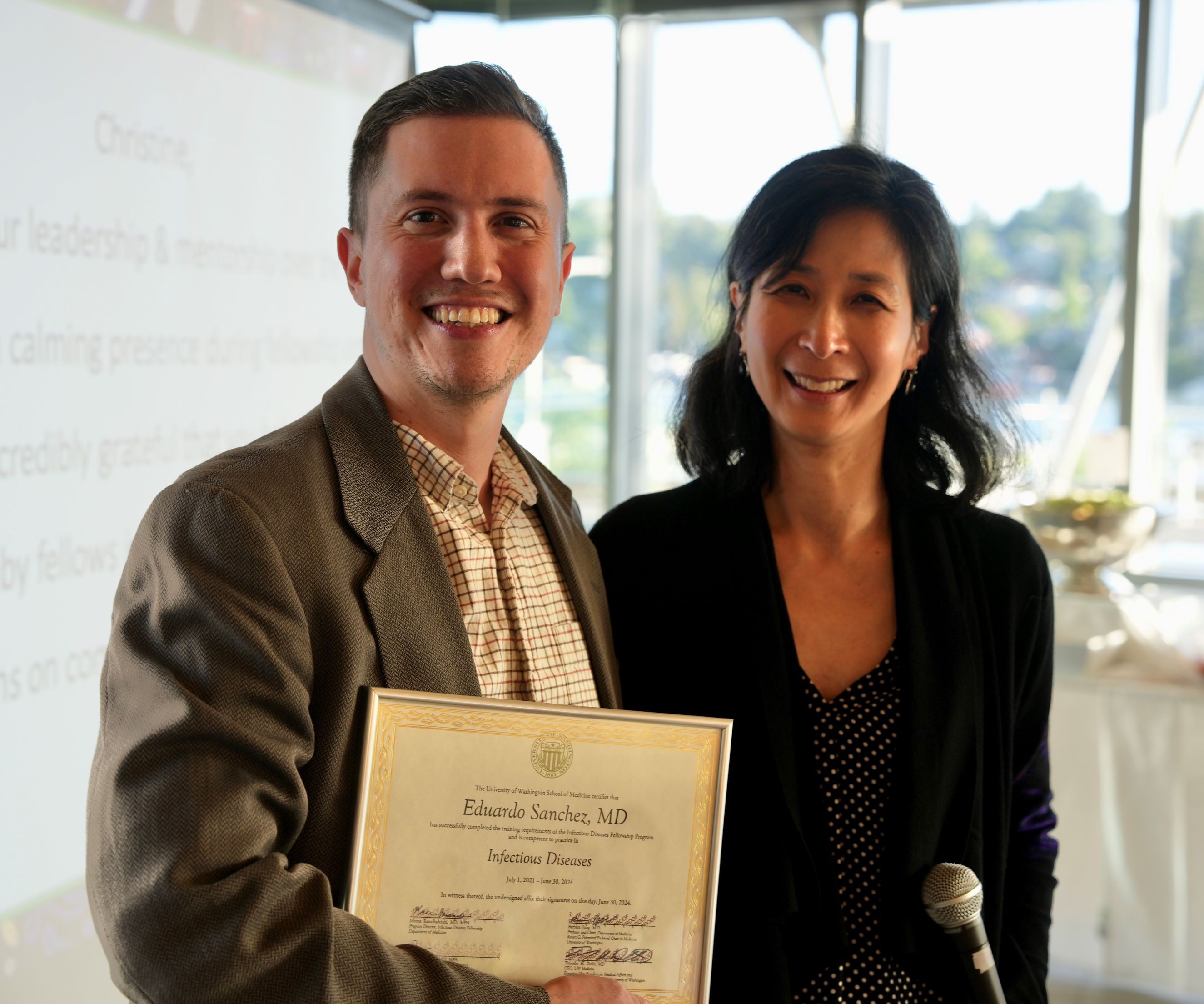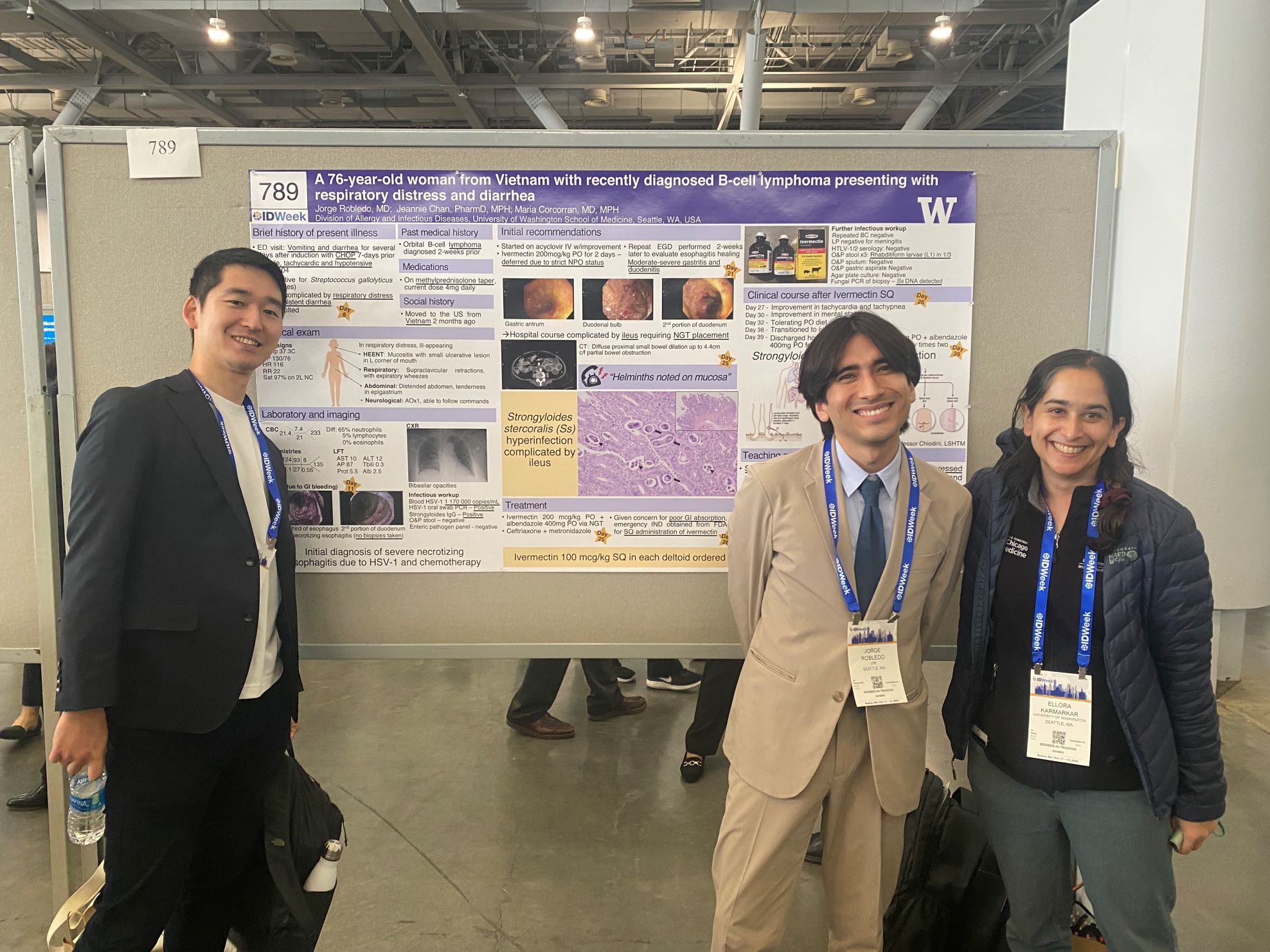will i receive clinical exposure to diverse areas of infectious diseases?
YES! We have outstanding opportunities to see various presentations of infectious diseases in immunocompetent and immunocompromised hosts. Specific areas of clinical expertise include:
General infectious diseases
Seattle is a thriving and growing city with a diverse patient population from around the world and a large catchment area for the 5 state “WWAMI” region (Washington, Wyoming, Alaska, Montana, Idaho).
- Specialized patient populations: People living homeless, people who use/inject drugs.
HIV
Inpatient HIV service at HMC serving people with HIV, including patients with new diagnoses, well-established infection. Outpatient HIV care at UWMC, HMC, and VAPSHC. Innovative care models such as the MAX clinic, designed to engage the hardest-to-reach persons living with HIV using a walk-in, incentivized care model.
Solid organ transplant
Oncology, stem-cell transplant, and CAR-T cell
Pediatric infectious disease at Seattle Children’s Hospital
How are faculty engaged in educating fellows?

- The UW ID Training program is a fellow-centered program. The fellows run the ID consult services with strong support from clinical faculty.
- Expert faculty with a wide array of expertise are available for difficult cases in their area of expertise, and are very approachable.
- Faculty do board review.
- Each fellow will be guided by a faculty mentorship committee to develop research questions and projects in their area of interest. The mentorship committee will also help support each individual as they choose their specific career path.
What are the areas of research excellence at UW?
With a faculty of over 120 professors, the expertise at UW is broad and deep. Fellows can choose their research projects and mentors based on their interest.
Examples Includes:
Sexual Health, with strong connections to the Public Health -Seattle and King County Sexual Health Clinic
HIV prevention and research
Virology
- Respiratory viruses, including SARS-CoV-2
- Virology Research Clinic
Stem Cell Transplant VIDD
Fungal infections
Infection Prevention and Control
Epidemiology
Malaria
Hepatitis
Tele-medicine
Center for Emerging and Re-emerging Infectious Diseases
Tuberculosis
Global Health: Kenya Research and Training Center
In such a large program, will I receive personalized mentorship?
YES! With the support of program leadership, a faculty mentorship committee is formed to help guide the academic research interest area and career of each fellow. The mentorship committee is comprised of 3 faculty members who are dedicated to ensuring ID Fellows obtain the necessary tools to achieve their career goals. The primary research mentor is on the committee, as well as 2 additional faculty member with overlapping interests.
Will I present and publish research findings?
In 2021-2022, fellows presented at:
- IDWeek
- Conference on Retroviruses and Opportunistic Infections
- International AIDS Society
- American Society of Transplantation
In 2021-2022, fellows and recent graduates published first-author publications in:
- Clinical Infectious Diseases
- Journal of Infectious Diseases
- Sexually Transmitted Diseases
- International Journal of STD AIDS
- AIDS
- J Clin Microbiology
- Journal of Medical Virology
- American Journal of Transplant
- Transplant Infectious Diseases
- Infectious Diseases Clinics of North America
- PLoS One
- Open Forum Infectious Diseases
What will i do after i graduate from UW ID Fellowship?
Past fellows have pursued careers as academic clinician-scholar, research with a K award or other funding, public health or CDC.
Will i receive a variety of Clinical Training?
- Yes, we have a broad array of rotations and different types of hospital sites. Plus, we have a month of pediatrics which is unique to UW.
- Yes, we have excellent faculty experts in all fields.
- Yes, we have a supportive program where fellows can be successful and supportive.
Rotations:
- SOT
- SCCA
- VA
- Gen ID
- Children’s
- Risk
- QI



